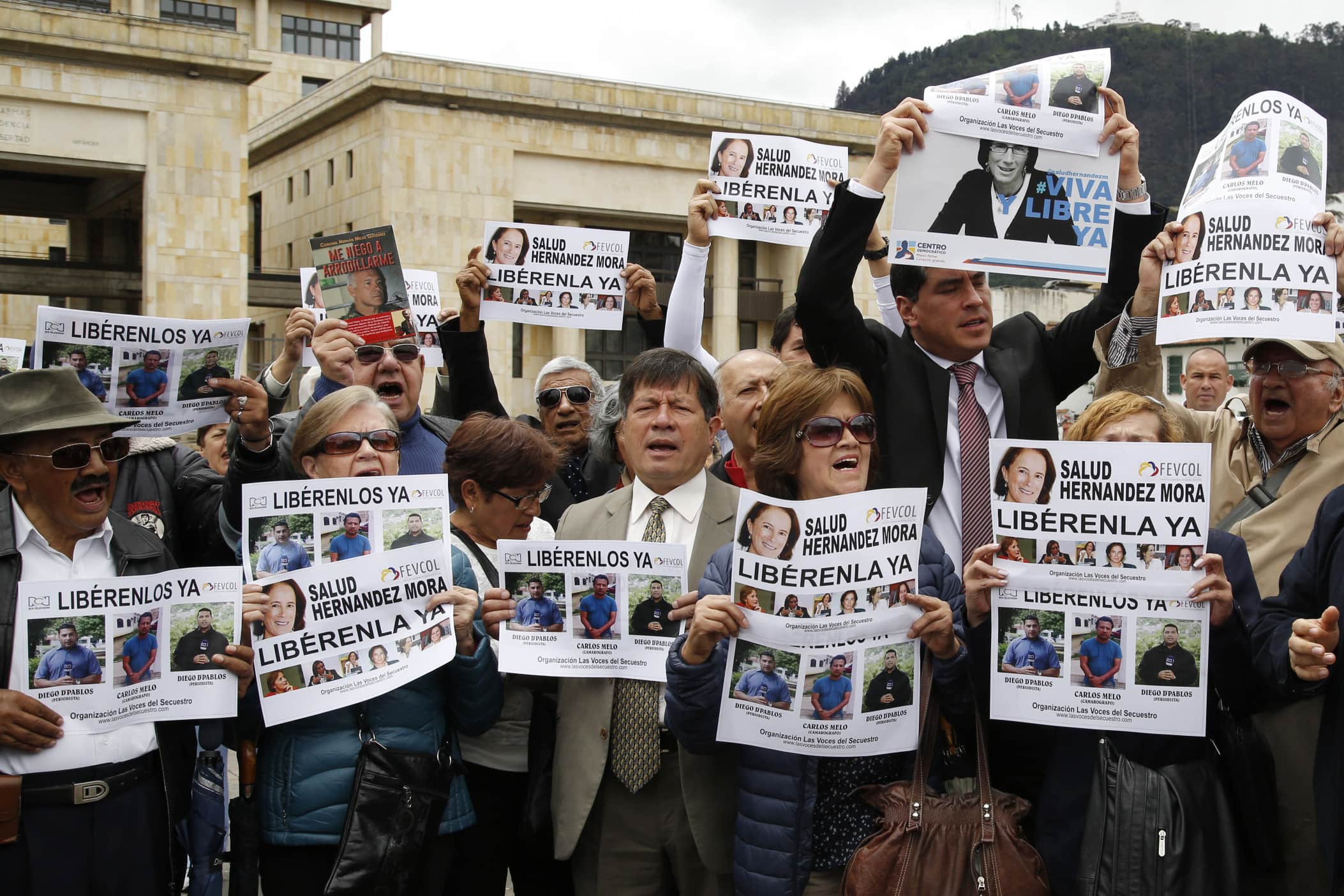After Colombian-Spanish journalist Salud Hernández-Mora went missing on 21 May in northern Colombia, two other journalists who went to report on her disappearance have also gone missing.
UPDATE: All three journalists were released on 27 May 2016. Read more in a press release from PEN International.
On 21 May, Colombian-Spanish journalist Salud Hernández-Mora went missing while in the Catatumbo region of northern Colombia, on the border with Venezuela. There are numerous rebel and paramilitary groups operating in the region, among them the National Liberation Army (ELN), a guerrilla group that is involved in the drug trade. According to a local IFEX member in Colombia, the Foundation for Press Freedom (FLIP), Hernández-Mora had been working in the area since 16 May, reporting on the story of an army captain who had been sentenced to 28 years of imprisonment for killing a farmer. She had also been investigating the death of an ELN leader, the cocaine trade, and recent eradication of illegal crops.
No one has claimed responsibility for her disappearance, but many, including the Colombian and Spanish governments, as well as her employer, the newspaper El Tiempo, are speculating that she has been kidnapped. According to reports from the International Press Institute (IPI), Spanish Foreign Minister José Manuel Garcia-Margallo has said signs suggest that Hernández-Mora was abducted by the ELN. Colombian President Juan Manuel Santos has asked the Ministry of Defense to make locating her a top priority.
The day before she was last seen in the village of El Tarra, her phone and camera had been stolen. Witnesses in El Tarra said that on 21 May Hernández-Mora was approached by someone promising to return her equipment. She left on a motorcycle with that person and has not been seen since.
On 23 May, reporters from various media outlets, including Radio Cadena Nacional (RCN), Caracol TV and the EFE press agency travelled to the area to cover the story of Hernández-Mora’s disappearance. According to FLIP, five journalists arrived in an area of El Tarra and were confronted by an unidentified group of armed rebels who confiscated and damaged some of their equipment. Police in El Tarra said that by the middle of the night, three of the journalists were still being held by the group. Reporter Diego D’Pablos and camera operator Carlos Melo of RCN are among those three. The identity of the third journalist and whether or not they are still being held are unclear.
The Committee to Protect Journalists (CPJ) reports that Diego Velosa, a correspondent for Caracol TV, was among the initial group of journalists held for about six hours. Velosa said that their captors identified themselves as members of the ELN and accused them of traveling through the region without permission. He also reported that when he was being released, the rebels said they were holding onto the RCN journalists.
After receiving the news of the missing RCN journalists, President Santos instructed the general of the Colombian Army to report to the search area to provide additional support to investigation efforts. A police team specialized in kidnappings has also been deployed.
A 25 May press release from the Office of the Special Rapporteur for Freedom of Expression said that the State must provide journalists with the greatest protection possible, because “Journalists serve a fundamental role in situations of armed conflict, as it is journalists who are risking their lives to bring the public an independent and professional view of what is really happening in areas of conflict.”
Numerous IFEX members have also commented on the case, including PEN International, Reporters Without Borders, and the Inter American Press Association, which has requested that authorities take every step to locate the journalists.
Commenting on the precarious situation for journalists in Colombia, IPI’s Director of Advocacy and Communications Steven M. Ellis added, “Particularly in the rural areas, journalists covering sensitive topics are targeted with impunity by local criminals, leftist guerrilla groups and right-wing paramilitaries.”
The hashtags #DondeEstaSaludHernandez (#WhereIsSaludHernandez) and #DondeEstanLosPeriodistas (#WhereAreTheJournalists) are now being used on social media, where this case is being followed closely.
Erin Woycik is the IFEX Section Editor for the Americas.
